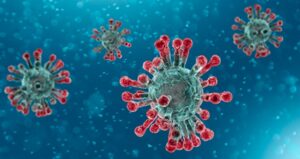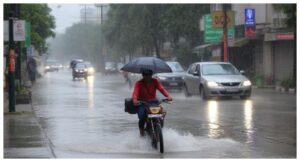Rising Child Illnesses Grip Patna Amid Drastic Weather Shifts

Patna: Over the course of a mere seven days, the weather in the capital has taken a sharp turn, leading to a surge in children presenting with alarming symptoms at both government and private hospitals. A growing number of children are reporting high fever, headaches, sore throats, coughs, chest tightness, wheezing, and difficulty in breathing.
In addition to respiratory issues, some children are experiencing stomach aches, diarrhea, vomiting, nausea, itching, and redness in the eyes. The severity of the fever is such that it persists relentlessly, with some children even experiencing delirium during sleep.
The influx of sick children has prompted midnight hospital admissions on a regular basis. Pediatricians such as Dr. Birendra Kumar Singh from the Indira Gandhi Heart Disease Institute and Dr. Krishna Keshav Thakur from the Sadar Primary Health Center report that 50 percent of children attending outpatient departments (OPD) exhibit these concerning symptoms.
The primary culprit behind this health crisis is viral infections, exacerbated by shifting seasonal conditions. However, bacterial infections are also contributing to the problem. Dr. Bhupendra Narayan, Head of the Pediatrics Department at PMCH, notes that 20 percent of children attending OPD present with such symptoms, with pediatric emergency admissions averaging 25 percent.
Pediatricians remark that recovery times have lengthened, with viral fevers now taking five to seven days to subside compared to the previous three to five days. Some children’s fevers persist despite paracetamol treatment or return shortly after. To manage severe cases, a combination of morphine or ibuprofen alongside paracetamol is administered, although this can sometimes lead to adverse effects on brain function, resulting in delirium during sleep.
In efforts to mitigate risks, parents are advised to employ methods such as using a wet bandage on the forehead or applying a wet cloth to the body to cool high fevers, along with ensuring adequate fluid intake. Children between six months and six years old are particularly susceptible to neurological effects from high fevers.
Neglected illnesses can lead to complications such as typhoid, pneumonia, and neurological issues, necessitating injections. The issue of persistent coughs is proving particularly challenging this time, with treatments offering only partial relief. While antiallergic medications, cough syrup, nebulization, and antibiotics alleviate symptoms for 70 percent of cases within four to five days, the remaining 30 percent require up to 25 days for resolution, particularly affecting children aged six months to three years.







